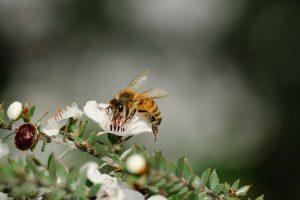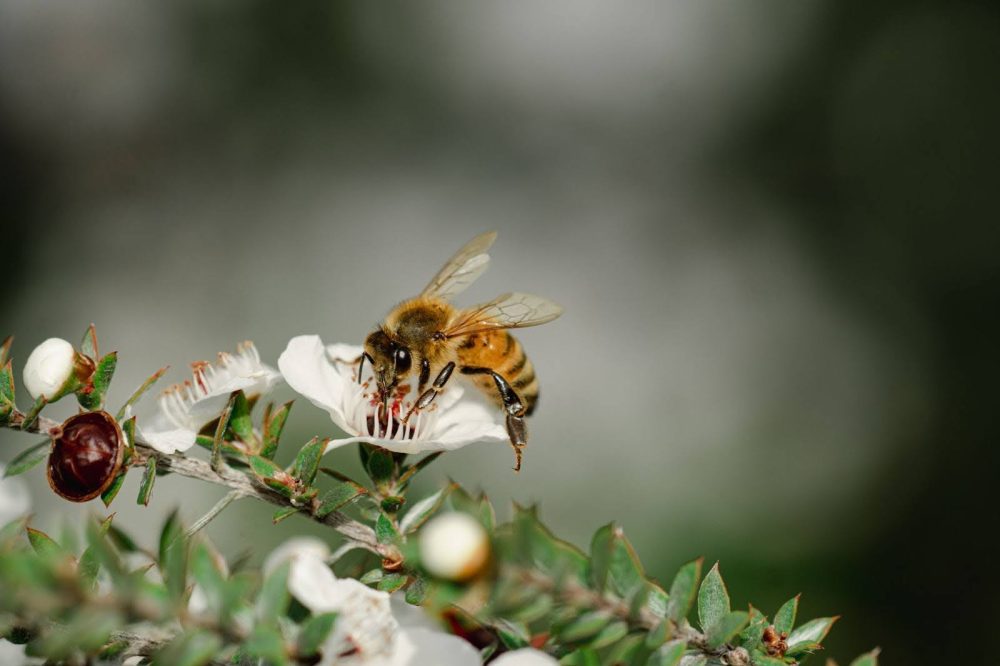 As one of the world’s most promising natural health remedies, New Zealand’s genetically unique Mānuka honey is a true product of serendipity. Produced by the interaction between two natural ecosystems, there is increasing scientific evidence to show the therapeutic effectiveness and potential of this golden honey.
As one of the world’s most promising natural health remedies, New Zealand’s genetically unique Mānuka honey is a true product of serendipity. Produced by the interaction between two natural ecosystems, there is increasing scientific evidence to show the therapeutic effectiveness and potential of this golden honey.
The Mānuka tree’s bark, leaves and flowers had been used in remedies by Māori for nearly 1000 years. When European honey bees were introduced to New Zealand in the middle of the 1800s, a happy accident occurred: they quickly developed a taste for mānuka and began producing honey infused with the tree’s bioactive properties. This honey, when used to treat wounds, was seen to aid with healing. Now, thanks to modern scientific research, we’re starting to understand why.

Beyond its sweet taste and traditional uses, research suggests that New Zealand Mānuka honey boasts potent antibacterial, anti-inflammatory, and antioxidant properties. Its potential health applications are extensive, but there are four key areas where researchers are uncovering promising results.
The best known application is in wound healing. Mānuka honey has antibacterial properties that can help fight infection and promote tissue regeneration. Studies have shown its potential for treating burns, ulcers, and surgical wounds.
The second area of research is gut health. While research is still in its early stages, Mānuka honey’s prebiotic components and antibacterial properties may contribute to better gut health. Some studies suggest it could potentially improve gut microbiota diversity and reduce harmful bacteria.
Immune system support is the third area of current research. Studies suggest that Mānuka honey may modulate the immune system, stimulating immune cell activity and reducing inflammation. However, more research is needed to confirm its specific effects.
Lastly, there are indications that Mānuka honey can aid with cough and cold relief. Some studies suggest that its anti-inflammatory and antimicrobial properties may play a role in relieving the cough symptoms associated with upper respiratory tract infections (URTIs) like colds.
While these areas of research suggest potential benefits, more high-quality clinical trials are needed to definitively confirm Mānuka honey’s effectiveness for specific health conditions: it remains a support for medical treatment, not a replacement.
With an increasing global buzz about Mānuka honey for health, there’s one important thing to remember above everything else. Plenty of honeys from all over the world claim to be Mānuka honey. But only UMF certified honey provides the potency and authenticity of New Zealand’s genetically unique Mānuka.
Important research papers:
- Gethin, G., & Cowman, S. (2005). Case series of use of Mānuka honey in leg ulceration. International Wound Journal, 2(1), 10-15. This early study showed promising results for Manuka honey in reducing the size and odor of superficial leg ulcers.
- Cushnie, T. P., & Taylor, P. W. (2005). Honey antibacterial activity against β-lactamase-resistant Staphylococcus aureus MRSA and vancomycin-resistant Enterococcus faecium (VRE). BMC Complementary and Alternative Medicine, 5(1), 4. This study demonstrated the effectiveness of Manuka honey against multiple antibiotic-resistant bacteria.
- Molan, P. C. (2006). The potential of honey for wound healing and anti-infection therapy. Current Drug Discovery Technologies, 2(8), 199-205. This review paper highlights Manuka honey’s potential to modulate the immune system and its antibacterial properties.


